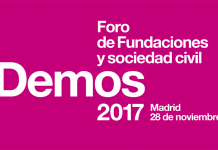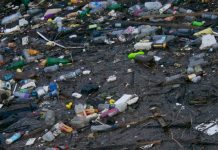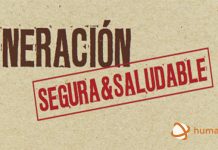La version anglaise se trouve ci-dessous
English version, see below
GENÈVE (7 août 2015) – Le Rapporteur spécial des Nations Unies sur la situation des défenseurs des droits de l’homme, Michel Forst, a exhorté aujourd’hui le Gouvernement du Burundi à protéger tous les militants des droits de l’homme après l’attaque brutale et la tentative d’assassinat contre Pierre Claver Mbonimpa, l’un des défenseurs les plus connus du pays, survenues cette semaine.
« La tentative d’assassinat d’un activiste aussi respecté que M. Mbonimpa envoie un message très effrayant à tous les membres de la société civile, ainsi qu’à l’ensemble de la population », a averti M. Forst. « Pendant cette période de troubles et d’insécurité dans le pays, je suis profondément préoccupé pour la sécurité de toutes les autres personnes militant pour les droits de l’homme au Burundi et demande la fin immédiate des violences. »
« Les autorités burundaises devraient clairement indiquer que ces actes odieux ne seront pas tolérés et faire tout leur possible pour protéger les défenseurs des droits de l’homme contre des attaques futures », a-t-il souligné. « Je réclame une protection immédiate pour M. Mbonimpa pendant sa convalescence à l’hôpital et demande instamment que cette attaque fasse l’objet d’une enquête indépendante et impartiale afin que ses auteurs soient traduits en justice dans le respect des normes relatives à un procès équitable. »
En tant que Président de l’Association Burundaise pour la Protection des Droits Humains et des Personnes Détenues (APRODH), M. Mbonimpa dispose d’une longue expérience dans la défense des droits des prisonniers et dans la lutte contre la torture au Burundi. Son travail a été reconnu internationalement par des prix des droits de l’homme, y compris le Prix Martin Ennals pour les défenseurs des droits de l’homme en 2007 et le Prix Henry Dunant en 2011.
M. Mbonimpa s’est exprimé publiquement sur des questions controversées, y compris sur les récentes élections présidentielles dans le pays, ce qui a conduit à son arrestation et à sa détention prolongée en 2014 et de nouveau en avril 2015.
« J’ai rencontré M. Mbonimpa à plusieurs reprises au cours de ma visite au Burundi en novembre 2014, et il m’est apparu comme l’un des défenseurs des droits humains les plus courageux et les plus respectés du pays. Les autres défenseurs que j’ai rencontrés l’appelaient respectueusement « le doyen », a ajouté le Rapporteur spécial.
« En collaboration avec d’autres experts du système des droits de l’homme des Nations Unies, nous avons à plusieurs reprises fait part au gouvernement de nos graves préoccupations sur la situation de M. Mbonimpa et avons réclamé l’arrêt immédiat de ces actes d’intimidation et de harcèlement. »
Cette déclaration a été endossée par les rapporteurs spéciaux des Nations unies sur la liberté d’opinion et d’expression, M. David Kaye ; sur la liberté de réunion pacifique et d’association, M. Maina Kiai ; sur la promotion de la vérité, la justice, la réparation et des garanties de non-répétition, M. Pablo de Greiff et M. Seong-Phil Hong, du groupe de travail sur la détention arbitraire.
***
En juin 2014, le Président du Conseil des droits de l’homme des Nations Unies a nommé M. Michel Forst (France) Rapporteur spécial des Nations Unies sur la situation des défenseurs des droits de l’homme. M. Forst a une vaste expérience en matière de droits de l’homme, et plus particulièrement en ce qui concerne les défenseurs des droits de l’homme, les droits des enfants handicapés, l’extrême pauvreté, et les personnes âgées. Il a occupé un certain nombre de positions de premier plan dans le domaine des droits de l’homme, notamment auprès de la Commission nationale consultative française des droits de l’homme, l’UNESCO, le premier Sommet mondial sur les défenseurs des droits de l’homme (Paris), et Amnesty International France. Pour plus d’informations consulter : http://www.ohchr.org/FR/Issues/SRHRDefenders/Pages/SRHRDefendersIndex.aspx
Les rapporteurs spéciaux et Groupes de travail font partie de ce qui est désigné sous le nom des procédures spéciales du Conseil des droits de l’homme. Les procédures spéciales, l’organe le plus important d’experts indépendants du système des droits de l’homme de l’ONU, est le terme général appliqué aux mécanismes d’enquête et de suivi indépendants du Conseil qui s’adressent aux situations spécifiques des pays ou aux questions thématiques partout dans le monde. Les experts des procédures spéciales travaillent à titre bénévole; ils ne font pas partie du personnel de l’ONU et ils ne reçoivent pas de salaire pour leur travail. Ils sont indépendants des gouvernements et des organisations et ils exercent leurs fonctions à titre indépendant.
Page du HCDH sur le pays – Burundi : http://www.ohchr.org/FR/Countries/AfricaRegion/Pages/BIIndex.aspx
_________________________________
Burundi: UN expert calls for protection of all rights defenders after attempted killing of top activist
GENEVA (7 August 2015) – The United Nations Special Rapporteur on the situation of human rights defenders, Michel Forst, today urged the Government of Burundi to protect all rights activists after this week’s brutal attack and assassination attempt on Pierre Claver Mbonimpa, one of the country’s top rights defender.
“The attempted killing of such a highly respected activist as Mr. Mbonimpa sends a very chilling message to all members of civil society and also the entire population,” Mr. Forst warned. “During this period of turmoil and insecurity in the country, I am gravely concerned for the safety of all persons advocating for human rights in Burundi and call for an immediate end to violence.”
“The Burundian authorities should make it clear that such heinous attacks will not be tolerated and do their utmost to protect human rights defenders from future attacks,” he stressed. “I call for immediate protection to be provided to Mr. Mbonimpa during his recovery in hospital. I also urge that the attack is subject to an independent and impartial investigation so that perpetrators are brought to justice with due regard to fair trial standards.”
As President of the Association for the Protection of Human Rights and Incarcerated Persons (APRODH), Mr. Mbonimpa has a longstanding record of advocating for the rights of prisoners and fighting against torture in Burundi. His work has been recognized internationally by human rights awards, including the Martin Ennals Award for Human Rights Defenders in 2007 and the Henry Dunant Prize in 2011.
Mr. Mbonimpa has spoken out publicly about controversial issues, including on the recent presidential elections in the country, which has led to his arrest and prolonged detention in 2014 and again in April 2015.
“I met Mr. Mbonimpa on several occasions during my visit to Burundi in November 2014, and he struck me as one of the most courageous and respected human rights defenders in the country. The other defenders that I met with referred to him respectfully as ‘The Senior’ (‘Le Doyen’),” the Special Rapporteur said.
“Together with other experts from the UN human rights system, we have repeatedly communicated our grave concerns to the Government about Mr. Mbonimpa’s situation and urged an immediate halt to such intimidating and harassing acts.”
This statement has been endorsed by the UN Special Rapporteurs on freedom of opinion and expression, David Kaye; on freedom of peaceful assembly and association, Maina Kiai; on the promotion of truth, justice, reparation and guarantees of non-recurrence, Pablo de Greiff; and Seong-Phil Hong, who currently heads the Working Group on Arbitrary Detention.
***
Mr. Michel Forst (France) was appointed by the Human Rights Council as the UN Special Rapporteur on the situation of human rights defenders in June 2014. Michel Forst has extensive experience on human rights issues and particularly on the situation of human rights defenders. In particular, he was the Director General of Amnesty International (France) and Secretary General of the first World Summit on Human Rights Defenders in 1998.
The Special Rapporteurs and Working Groups are part of what is known as the Special Procedures of the Human Rights Council. Special Procedures, the largest body of independent experts in the UN Human Rights system, is the general name of the Council’s independent fact-finding and monitoring mechanisms that address either specific country situations or thematic issues in all parts of the world. Special Procedures’ experts work on a voluntary basis; they are not UN staff and do not receive a salary for their work. They are independent from any government or organization and serve in their individual capacity.
Learn more:
Rights defenders: http://www.ohchr.org/EN/Issues/SRHRDefenders/Pages/SRHRDefendersIndex.aspx
Peaceful assembly: http://www.ohchr.org/EN/Issues/AssemblyAssociation/Pages/SRFreedomAssemblyAssociationIndex.aspx
Freedom of expression: http://www.ohchr.org/EN/Issues/FreedomOpinion/Pages/OpinionIndex.aspx
UN Human Rights, Country Page – Burundi: http://www.ohchr.org/EN/Countries/AfricaRegion/Pages/BIIndex.aspx


























